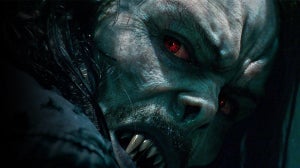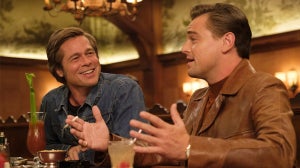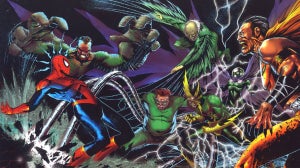
David Lynch has once again returned to the spotlight on Zavvi, following the release of our limited edition Twin Peaks Poster. Twin Peaks, the eerie TV drama that centered on the mysterious murder of Laura Palmer in a small, seemingly ordinary town, became a huge success in the early nineties and turned Lynch into a cult phenomenon.
Lynch is perhaps best known as the figurehead of surrealist cinema. Drawing on dreamlike, sensual and violent imagery, both Twin Peaks and Lynch’s feature length films are renowned for the combination of horror and light-heartedness, the absurd and the familiar. Ordinary worlds are deformed into strange dreamscapes, in which the lack of narrative logic is perhaps what’s most haunting about them. Viewers are left grasping for meaning, subjected to David Lynch’s genius, but disturbed imagination.
But hey – at least they make your dreams about crushing and crumbling teeth seem less obscure! As such, let’s take a look at three of Lynch’s most successful thrillers, which have all helped to give shape to his remarkable career.
Eraserhead
https://www.youtube.com/watch?v=dU7OqGCIcak
Whether or not Eraserhead (1977) is pleasurable to watch might be disputed, but Lynch’s first feature film certainly makes up for it with an unusual and riveting viewing experience. Due to a shortage of money, Eraserhead was filmed intermittently over a time span of 5 years.
The film might be considered as Lynch at his most honest and basic: no big Hollywood actors or glamorous film sets. Yet it includes all the elements inherent to a classic Lynch film.
We meet Henry Spencer (Jack Nance), a factory employee who is currently ‘on vacation’. After he is told his girlfriend Mary X gave birth to a child, the couple move in together and start caring for the baby. The child has the shape of something that could best be described as an enlarged, alien-like spermatozoon, embodying any newly parent’s fear and insecurity underlying parenthood.
Mary soon moves out, and Harry is left alone with the creature, haunted by visions and dreams while the baby is screeching incessantly in the background. Like Lynch’s later film The Elephant Man (1980), Eraserhead is shot in black-and-white, creating an unsettling, shadowy atmosphere. A beautiful, but claustrophobic, picture is painted of a deserted industrial town with the constant rattling sound of machinery to be heard in the background, that seems to mirror Henry’s growing sense of anxiety and descent into madness.
Lynch’s exploration of nightmarish disquiet, creeping suspense and mysterious encounters with uncanny figures (such as The Lady in the Radiator) have certainly paved the way for his later films and have become trademark elements throughout his career.
Blue Velvet
https://www.youtube.com/watch?v=bWr4JvAWF20
With Blue Velvet (1986), Lynch officially rose to stardom, receiving his second Oscar nomination for Best Director after the Elephant Man, making his return after the commercial failure of Dune (1984), a complex adaptation of the eponymous science-fiction novel by Frank Herbert.
Twin Peaks fans will find many similarities between Blue Velvet and the TV series. They are both set in small, idyllic towns that seem to embody America’s ideal suburb of the 1950s: shiny green lawns, freshly painted picket fences and waving neighbours.
In Blue Velvet, the peace is disturbed by the discovery of a severed ear.Student Jeffrey Beaumont (Kyle MacLachlan) is determined to solve the mystery and soon finds himself embroiled in a criminal conspiracy. The scene in which he breaks into a woman’s house and voyeuristically watches her undress – and get raped – from within a wardrobe, has become one of the most shocking and powerful moments in film history.
Like Twin Peaks, the morality of anyone who appears innocent at first glance is soon questioned. Is Jeffrey just eager to unravel the mystery or is he a pervert too, like his girlfriend Sandy (Laura Dern) jokingly suggests? The use of flat characters in the film can at times be problematic, with characters bordering on artificiality and caricature (especially with regard to the female characters).
Yet this choice doesn’t seem arbitrary and Lynch has tried to reinforce the idea that nothing is as it seems, that behind the facade, there’s a deeper, darker and seedier world than we are aware of. Blue Velvet is Lynch’s quintessential film noir.
Mulholland Drive
https://www.youtube.com/watch?v=XQ5Q0CHQ0EU
After Lynch became one of the world’s most celebrated cult directors in the nineties – after the success of Twin Peaks, and to a lesser extent his films Twin Peaks: Fire Walk With Me, Wild at Heart, Lost Highway and The Straight Story – Lynch again surpassed himself with the release of Mulholland Drive in 2001.
Whereas his previous works experiment with dreams and include many inexplicable, nightmarish scenes, Mulholland Drive is different in the sense that it doesn’t just contain fragments of dreams, it is entirely structured as a dream narrative. The film has therefore been criticized by some as impossible to grasp. In our opinion, however, it’s what makes the film worth watching, relying entirely on the irrationality of dreams – arguably the goal Lynch has always been working towards throughout his career.
Laura Harring stars as ‘Rita’, an amnesiac woman who develops a relationship with an aspiring, cheery actress called Betty (Naomi Watts). While the two women are trying to decipher what happened on the night that Rita lost her memory, the plot makes a sudden turn and we are presented with a different reality – one in which the women have different names and are deeply unhappy with one another.
The frequent use of bed and sleep imagery, the incoherence of the different plot lines and the theatricality of the women’s relationship suggest that the picture painted before the turn was an idealized, dreamed up world in which a better life was imagined. Like in Lynch’s Inland Empire (2006), it’s hard to distinguish between what is real and what is fantasy. The films are self-reflexive and frequently draw the attention of the viewer to the making and artificiality of film itself. It’s up to the viewer to decide how to make sense of it.
By rejecting a cohesive narrative and blurring the lines between dream and reality, art and the audience, Lynch proves himself to be the true master of his films, depriving both the characters and the viewers of any sense of logic.
Never forgetting to include quirky moments of comic relief, Lynch has become one of the most unique directors of the last century.
Featured Image Source: Rex Features









